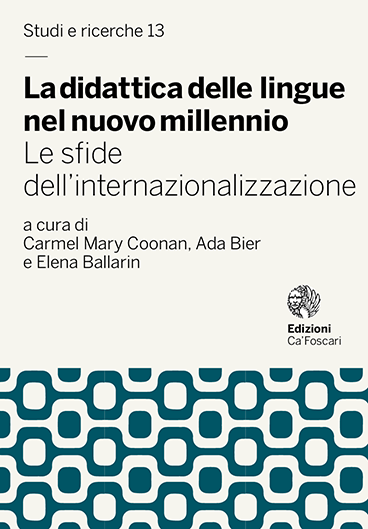- search 292 views
- file_download 15 download
- keyboard_capslock metadata
-
mark_email_readIscriviti alla newsletter
Il sillabo interattivo
Una proposta per integrare autovalutazione e valutazione in entrata dell’italiano L2 rivolta a studenti universitari stranieri in scambio con l’Università di Padova
abstract
The project aims to present the results of an experimental research study conducted during the academic years 2015-2016, 2016-2017 at the University of Padova Language Centre (CLA). The objectives of this study are to examine the results of the proposal to integrate self-evaluation and entrance evaluation aimed at foreign incoming students enrolled at our University. In the first phase an initial review of the placement test results carried out at the CLA combined with an examination of language certificates presented by the students has raised some critical issues related to incongruous data among the various tests/certifications. Other situations have shown different results regarding language skills within the same test, which has reinforced the decision to also introduce a system of self-assessment to grant greater autonomy and responsibility to the students when choosing their class. To this end, in the second phase, two different self-assessment tools have been assigned to the students with the attempt to answer the questions whether students can be good “self-assessors” and if self-assessment tools based on Common European Framework of Reference (CEFR) “can do” descriptors and on the Syllabus adopted in our language Centre can be used as reliable diagnostic tools in an academic environment in which learners are expected to have some experience with self-rating. The results have shown that the self-assessment instruments we used may function as a placement tools, but that this is true especially in the case of learners who are familiar with self-assessment and with the teacher’s guidance. The third phase, described in detail in this contribution, is to overcome the previously emerging critical issues by providing an interactive guided syllabus, since it effectively integrates evaluation and self-assessment and actively engages the student in choosing the proper language level through online activities.
Keywords: Learner autonomy • Self-assessment • Placement test • CEFR • L2 Italian




